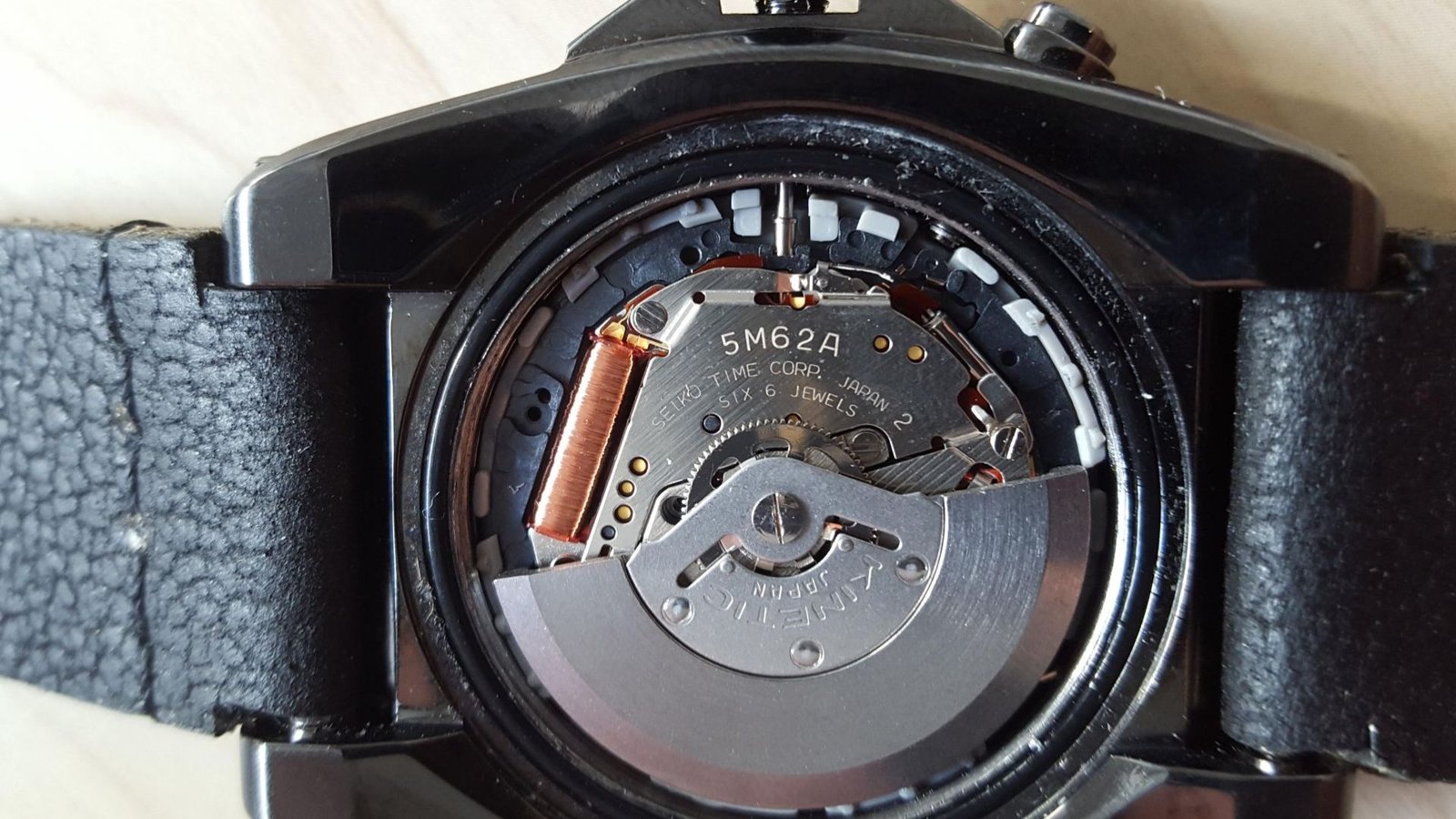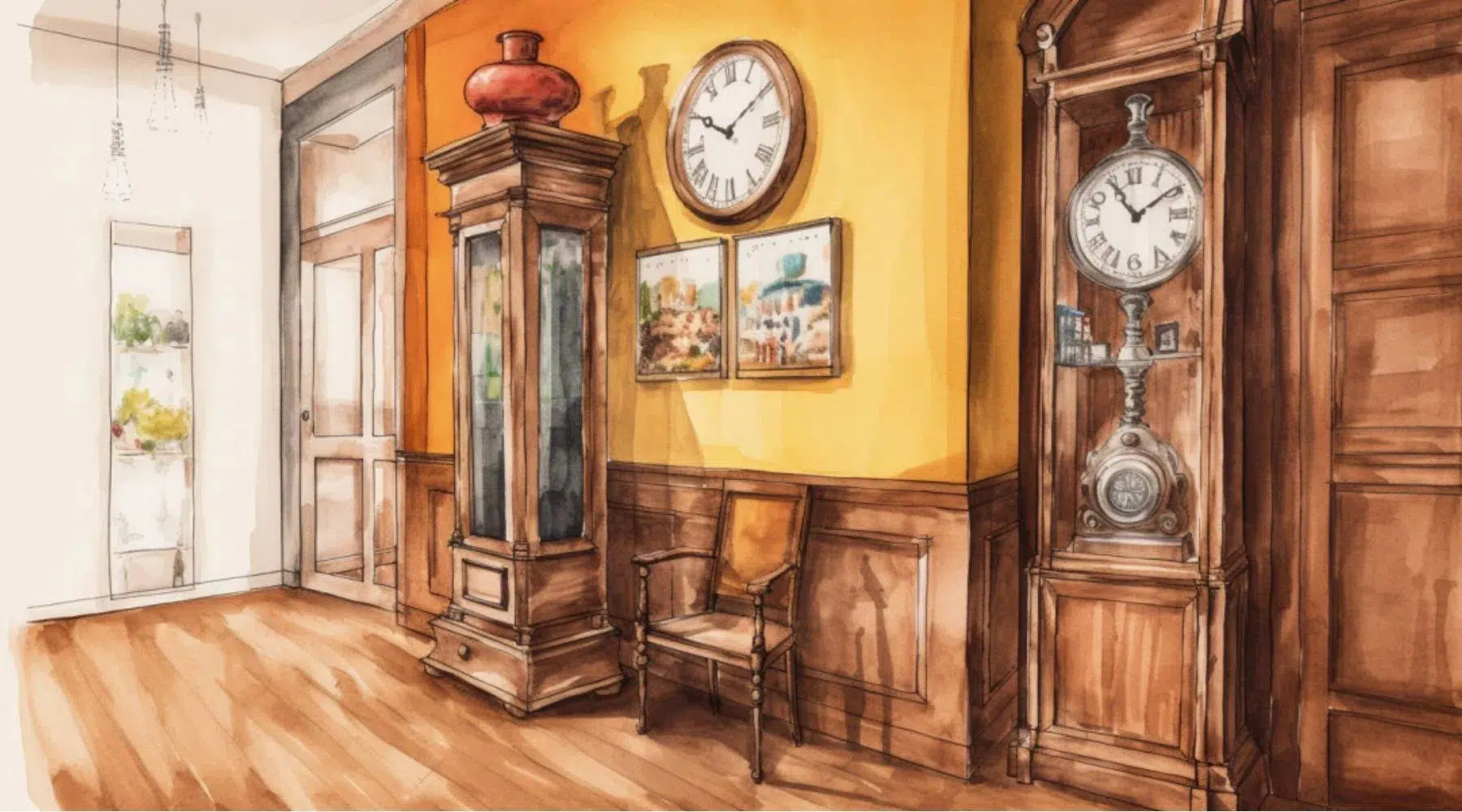Clocks are essential in our daily lives, but like any mechanical or digital device, they can sometimes face issues. Understanding these common clock problems and knowing how to fix them can help you keep your timepieces running smoothly. Whether you have an old mechanical clock or a modern digital one, this guide covers some of the most frequent problems and offers simple solutions.

Clock Losing Time
Problem:
If your clock is consistently running slow and losing time, it may be due to several factors.
Possible Causes:
- Power Source Issues: For battery-operated clocks, the battery may be weak or dying.
- Pendulum Misalignment: For mechanical clocks, the pendulum may be misaligned or need readjustment.
- Lubrication Needs: In older clocks, lack of proper lubrication can cause parts to run slower.
How to Fix:
- Replace the Battery: For battery-powered clocks, try replacing the battery with a new one.
- Pendulum Adjustment: In pendulum clocks, ensure that the pendulum is properly aligned. If it’s hitting the sides or swinging irregularly, gently adjust it to the correct position.
- Lubrication: For older clocks, apply clock oil to the movement. If you’re not familiar with the internal workings, it may be best to consult a professional.
Clock Gaining Time
Problem:
If your clock is running too fast, it could be due to a few common issues.
Possible Causes:
- Regulation Issues: Mechanical clocks have regulators that control the speed of timekeeping, and these may need adjustment.
- Battery Overload: For digital clocks, an overcharged battery or power surge can cause the clock to run too fast.
How to Fix:
- Adjust the Regulator: On mechanical clocks, find the regulator screw and turn it to slow down the clock. A slight adjustment should correct the issue.
- Check the Power Source: For digital clocks, try removing and reinserting the batteries or reset the clock by unplugging and plugging it back in.
Clock Won’t Chime Correctly
Problem:
Chiming clocks, such as grandfather clocks or mantel clocks, may not chime correctly or at the right times.
Possible Causes:
- Wrong Time Setting: The chime may be out of sync with the clock hands.
- Stuck or Broken Mechanism: In some cases, the chime mechanism may be stuck or damaged.
How to Fix:
- Resync the Chimes: Move the minute hand to the 12 o’clock position and wait for the clock to chime. Then, adjust the time by moving the minute hand back to the correct position, allowing the clock to chime each hour as you move the hands.
- Lubrication or Cleaning: If the mechanism is stuck, cleaning and lubricating the movement can solve the issue. If parts are broken, they may need to be replaced by a professional.
Pendulum Stops Swinging
Problem:
A pendulum clock may stop swinging, causing the clock to stop working.
Possible Causes:
- Imbalance: The clock may not be on a level surface, causing the pendulum to stop.
- Dirt or Dust: Dust accumulation in the movement can cause the pendulum to stop.
- Movement Blockage: Something may be blocking the pendulum or movement gears.
How to Fix:
- Check the Level: Ensure the clock is standing on a level surface. Adjust the feet of the clock or use a level tool to make sure it’s balanced.
- Clean the Movement: Dust the internal parts of the clock carefully. Use a soft cloth or brush to remove dirt and dust from the pendulum and movement gears.
- Inspect for Blockages: Open the clock’s back to check if anything is obstructing the movement or pendulum. Remove any objects that may be causing a blockage.
Clock Hands Not Moving
Problem:
If the hands on your clock aren’t moving, the issue may be mechanical or electronic.
Possible Causes:
- Loose Hands: The hands may be loose or misaligned, preventing movement.
- Motor Failure: In digital or electric clocks, the internal motor could be damaged.
How to Fix:
- Tighten the Hands: Open the clock face and inspect the hands. If they are loose, gently tighten the nut holding them in place. Ensure that the minute and hour hands are not touching each other.
- Replace the Motor: In digital clocks, you may need to replace the motor if it’s no longer functioning. Consult the manufacturer or a clock repair expert for assistance.
Clock Won’t Keep Time After Resetting
Problem:
Some clocks fail to keep time after you’ve reset them.
Possible Causes:
- Internal Issues: The internal movement may be damaged or malfunctioning.
- Power Issues: In electric or battery-powered clocks, a power failure or short circuit could be the cause.
How to Fix:
- Check the Movement: Inspect the clock’s internal movement for any obvious signs of damage or wear. You may need to clean or lubricate it, or even replace certain parts.
- Ensure Proper Power Supply: Double-check that the clock is receiving power properly. For electric clocks, ensure it’s plugged in securely. For battery clocks, replace old batteries with fresh ones.
Conclusion
Clock problems are common, but many of them can be easily fixed with the right tools and knowledge. Whether your clock is losing time, not chiming correctly, or the hands aren’t moving, a few basic adjustments or cleanings can usually solve the issue. If the problem persists, consulting a clock repair professional is always a good idea. With regular maintenance, your clocks will keep running smoothly for years to come.





Bitte beachtet dabei, dass Gratisangebote auch Bonusbedingungen haben. Ihr sucht nach fairen Boni
und Freispielen, die sich wirklich lohnen? Dann schreibe uns eine E-Mail an -casinos.de Für die Freispiele betragen die Umsatzbedingungen dagegen sogar 60-mal innerhalb
von 30 Tagen, was uns ehrlicherweise etwas streng vorkam.
Außerdem schenkt Ihnen JokerStar für Ihre zweite Einzahlung in Höhe von mindestens 25 € 25 weitere Freispiele für den Spielautomaten Ramses Book.
Allerdings müssen die 30-maligen Umsatzbedingungen innerhalb von nur
3 Tagen erfüllt werden. Mit der dritten Einzahlung
können Sie sich 40 Freispiele für Book of Ra Deluxe
und einen 50 € Bonus sichern. Die zweite Einzahlung bringt Ihnen 20 Freispiele für
Sizzling Hot Deluxe sowie 20 € Bonusgeld.
References:
https://online-spielhallen.de/1red-casino-login-ihr-weg-zum-spielvergnugen/
Mit über 3.000 Spielen, darunter viele exklusive Slots und Live Tische, sowie der Lizenz der Malta Gaming Authority, bietet das Roby Casino ein rundum sicheres und unterhaltsames Spielerlebnis.
Ein starker 200% Willkommensbonus bietet mehr als das Dreifache Ihrer ersten Einzahlungen. Unsere Liste umfasst renommierte und lizenzierte Anbieter, die Ihnen nicht nur sichere Einzahlungen bieten, sondern auch eine erstklassige Auswahl
an Spielen und großzügige Bonusangebote. Mittlerweile
wissen wir, welche Paysafecard Online Spielbanken wirklich sicher sind und einen guten Datenschutz bieten. Beim Vergleich mit anderen Plattformen überzeugt uns PlayiO mit einem Willkommensbonus
von starken 250 % bis zu 2.700 € + 150 Freispielen. Als neues Casino für Deutschland bietet zusätzlich Krypto, MiFinity,
Jeton und Apple Pay sowie andere sichere Zahlungsmethoden.
Fast jedes Online Casino bietet einen Willkommensbonus, egal ob
die Überweisung mit PaysafeCard oder einer anderen Zahlungsmethode erfolgt.
Die Geldeinzahlung mit PaysafeCard in Online Casinos bietet
zahlreiche Vorteile, insbesondere bei Beträgen von 5 und 10 EUR.
Normalerweise loggst du dich mit deinem paysafecard-Konto im Online
Casino ein und die Zahlung wird über dein Konto abgewickelt.
Slot-Spieler können einfach einen 16-stelligen PIN-Code erwerben und diesen nutzen, um ihr Guthaben sicher und anonym
auf ihr Spielerkonto zu übertragen – ohne die Angabe von Bankdaten.
References:
https://online-spielhallen.de/888-casino-deutschland-ihr-umfassender-leitfaden-mein-erfahrungsbericht/
Casino sites offer free spins to new customers as a registration bonus.
Casinos offer enticing welcome packages for new players and exclusive rewards for existing punters.
It’s an excellent opportunity to explore the featured games and win real money for free.
Here, we will cover the bonus wagering requirements, eligible
games, and more. Securing bonuses at casino sites is easy with our daily reviews.
Free chip and spin codes are great for slots fans but if you want
to try out a range of games including roulette and poker the free
play codes are best.
For example, you might get a no deposit freebie plus cashback
on your first loss. Watch for tight game limits and high
playthroughs. You’ll get a set number of free spins
(like 20FS, 40, or 75) on a specific pokie. This is the most common no deposit
deal. You’ll usually get free spins or a small cash balance after signing up,
sometimes with an SMS or email verification step.
References:
https://blackcoin.co/casino-utan-svensk-licens-jamfor-alla-basta-casinon-utan-spelpaus/
The sign-in process works seamlessly across
all devices, whether you prefer playing on desktop, mobile app, or through your browser.
Welcome to The Game Perk, your go-to spot for all things gaming excitement!
It is safest to use coin links from legitimate sources for safety and
legitimacy reasons. Betting too high may easily deplete your coin balance,
while smaller bets give longer playtimes. Be sure to verify the source of such
links to ensure that they are legitimate and safe.
By implementing the tips described in this blog,
you will surely have a continuous flow of coins and can extend gameplay to new levels.
The best method to maximize free coins includes participation in events, signing in daily, and fulfilment of in-game achievements.
Bonus collection such as Cashman Casino Free Coins Daily Reward Link keeps the gameplay interesting and
engaging, bringing new opportunities to get big reward.
Free Cashman Slots Coins ensure uninterrupted access to the game’s huge collection of slot machines and features.
Cashman Casino Free Chips are used with free coins to boost your games.
We have informed Facebook of the incident and submitted invoices but still, they wouldn’t allow him access.
The account was locked after my son added his info through
the iPad. After my son bought an Ipad through one of their ads he realized that his account was blocked.
After replying to my friend’s post with a comment that the
site apparently didn’t appreciate, they blocked my account and now I’m
suspended. Daniel understands customer needs and able
to provide an objective evaluation for casinos he is reviewing.
Previously owned his own small casino brand, Daniel Velasquez becomes an expert in the online gambling domain.
References:
https://blackcoin.co/are-online-casino-vip-programs-worth-it/
Wins and losses are part of the experience, and chasing
losses can only lead to frustration. It’s important to remember that a casino is not
a way to earn money. At SkyCrown Casino AU, we believe gambling should always stay fun and safe.
Platforms like SkyCrown Casino AU tick all these boxes, giving
Aussies a safe, fun, and rewarding space to play.
For Australians who value fast payouts and a stress-free mobile experience, SkyCrown aims to deliver exactly that.
Aussies appreciate that the entire platform is built around smooth play, whether you’re on desktop at home or on your mobile during a short break.
No clutter, no endless loading times – just quick access to the games you want.
This license validates that the platform adheres to international benchmarks
for equitable gameplay, openness, and safeguarding of player entitlements.
Details regarding bonuses are posted on the official website and within your individual account, keeping
you informed of the latest available opportunities.
This promotion is available once you fill out the account.
Make a deposit of at least 48 AUD every week
from Friday to Thursday. You will receive a 50% reload bonus
with a maximum limit of 3251 AUD. Once per month, deposit at
least 162 AUD with the HIGH5 promo code. The VIP program in the
casino is not specified.
References:
https://blackcoin.co/play-online-jackpot-jill-casino-australia-your-ultimate-guide/
online casino accepts paypal us
References:
https://ajira-hr.com/employer/best-real-money-online-pokies-in-australia-for-december-2025/
casino paypal
References:
https://karierainsports.gr/employer/paypal-casinos-2025-best-online-casinos-accepting-paypal/
paypal casinos for usa players
References:
http://www.sunti-apairach.com
casino mit paypal einzahlung
References:
corerecruitingroup.com
online casino for us players paypal
References:
https://macrorecruitment.com.au
online casino mit paypal einzahlung
References:
https://jobteck.com/companies/best-online-casinos-australia-top-aussie-gambling-sites-2025
It’s laborious to search out knowledgeable individuals on this topic, but you sound like you already know what you’re talking about! Thanks